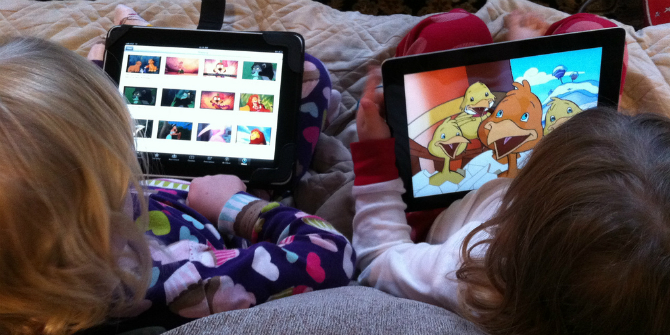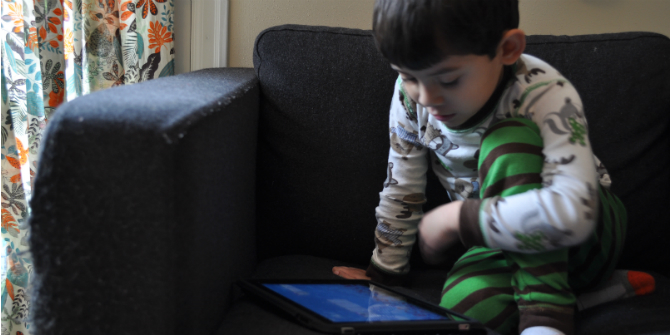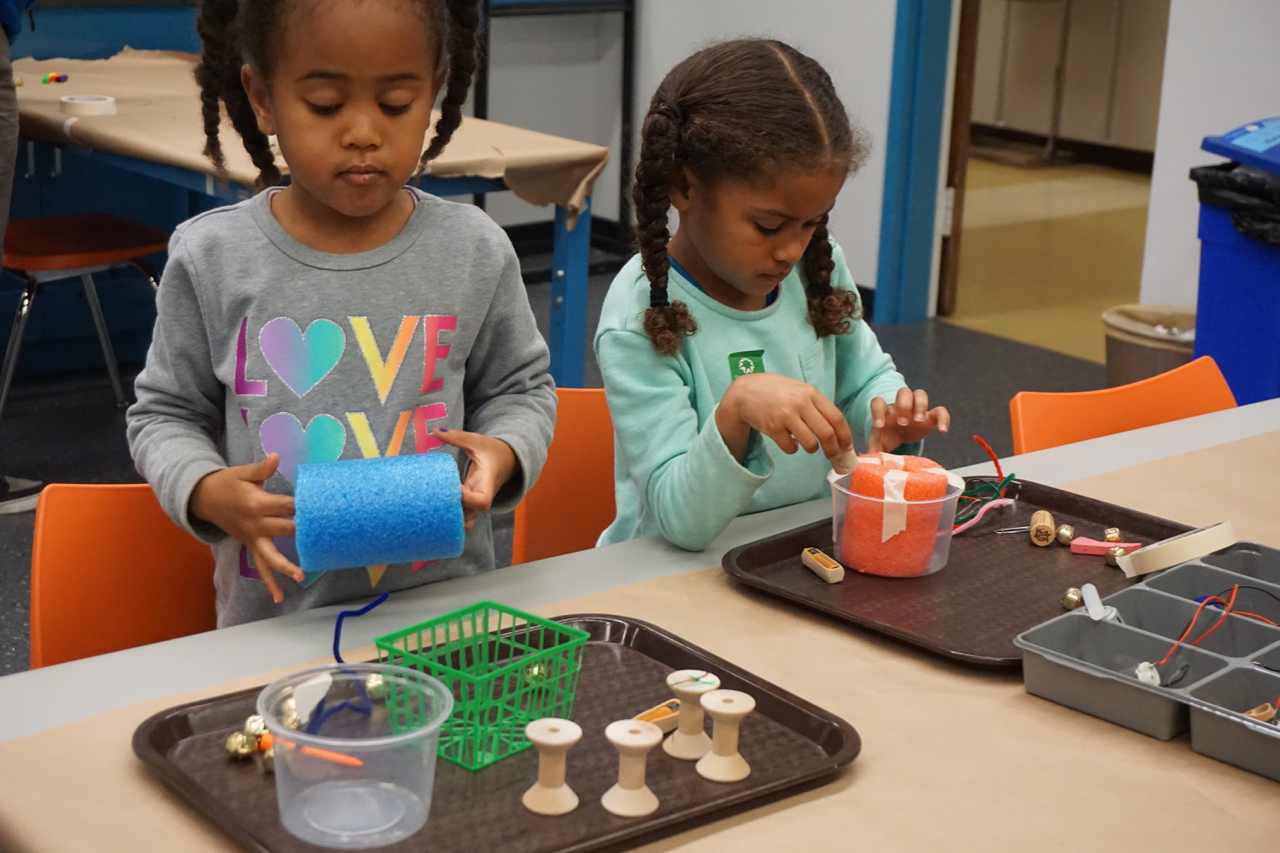Alicia Blum-Ross looks at children’s digital ‘future’, and the ‘intense anxiety’ experienced by some parents in finding a balance between maximising their children’s opportunities and future prospects, and limiting, for example, their ‘screen time’. Alicia is a researcher at the LSE’s Department of Media and Communications. She is interested in youth media production and is part of the Parenting for a Digital Future research project.
What does the future hold? That abstract destination – just there on the horizon, but out of reach – is fantasised about by policy-makers, researchers and parents, as a space of possibility, and of potential risk. The future, as anthropologist Arjun Appadurai describes it in a recent book, is not yet a ‘fact’, but brought into being through a combination of ‘imagination, anticipation, and aspiration.
Judith Warner describes modern parenting (especially mothering) as characterised by intense anxiety – much of which is connected to visions of the future. Parents are told that their actions (or inactions) in their children’s ‘early years’ can have serious consequences in later life. On the one hand, this is a kind of agency, reminding parents that they have some power to make a change. On the other, as described by Frank Furedi, this form of ‘parental determinism’ can have a negative impact, making parents feel as though they are to blame if they don’t (or often can’t) ‘optimise’ their children’s environment.
A dilemma of modern parenting
While listening recently to one of my favourite podcasts, I was reminded how often this anxiety rests on the seemingly inevitable relationship between digital technology and children’s future prospects. In the podcast, the host interviews parents navigating between wanting to limit their children’s ‘screen time’, but at the same time, worrying that their children will be ‘left behind’ if they do.
 Credit: W. Vota, CC BY-NC-SA 2
Credit: W. Vota, CC BY-NC-SA 2
Shaping the future
The very concept that people have the power to participate in shaping their own future is relatively recent. Barbara Adam describes how from the time of the Enlightenment people started feeling a greater sense of responsibility towards the future. Over time, ‘the future [became] no longer a mere continuation of the past but … a consequence of actions in the present.’ In order to have an impact on the future, individuals need to imagine what they hope the future will look like – or sometimes what they hope it won’t look like – so they can decide what to do. In many cases this is based on individual experience, for example, parents wanting their children to grow up to be either similar to how they are, or to avoid some of the challenges they themselves have faced.
Here are two examples of how parents may shape their children’s future. The first is children acquiring language at young ages – which is apparently a predictor of later academic success. Well before the current preoccupation with language development, LeVine et al studied Mexican mothers’ ‘parental belief systems’ around education, and how their own experiences of school influenced their interactions with their children.
Their research compared children whose mothers had had some schooling versus those who hadn’t. The children whose mothers had experienced school were more likely to have bigger vocabularies (and score higher on tests) as older children. This, the researchers proposed, was because the mothers who had gone to school implicitly prized their children’s ‘verbal ability’, knowing from their own experience that public speaking is the ‘kind of skill … that confers an advantage in school.’ It’s not necessarily that this is the ‘concerted cultivation’ (that we wrote about previously) by the mothers in a direct way, so much as through their own experience they were able to anticipate their children’s future needs and prepare for them.
Although some of the parents in our research feel nervous that their children’s futures may be so different from their own that they don’t know how to support them, many use their own (often non-digital) experiences as a starting point.
The second example concerns a parent we interviewed who was trained as a creative artist. Although she didn’t really use digital media in her own career, she recognised that her daughter seemed to have an interest in thinking about design, which was especially notable because she was struggling in formal schooling. She started taking her daughter to a London Makerspace to use a 3D printer, and helped her learn the basics of 3D modelling software. She explained to us how she hoped these skills might help her daughter find future employment perhaps, or at the very least, something to enjoy and build her confidence in the present.
We don’t know what will happen when her daughter grows up (she’s only 11, so career choices or further study are still some way away), but at the moment it seems likely that these interests may be something she pursues for employment or pleasure. Research shows that recognising young people’s creative interests and helping them access mentors can make a difference in terms of what they choose to pursue in the future. So this mother’s imaginary of her daughter’s creative future, informed by her own life, might well have an impact on what the daughter chooses to do.
Parenting in the present
What we can see from these two very different examples are that parents’ own experiences and expectations of what might come next for their children are significant in how they imagine, prepare for and anticipate the future. And how they imagine their children’s future, and presumably how they feel about themselves, influences how they parent in the present.






